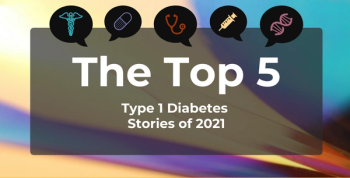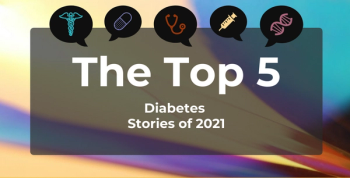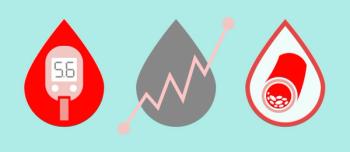
Diabetes
Latest News
Latest Videos

CME Content
More News

Patients with diabetes living in rural or deprived regions in the United States are less likely to achieve optimal care for their condition, according to a new cross-sectional study.

The most popular type 1 diabetes articles published in 2021 included new research on screening and updated coverage policy.

An analysis uncovered racial, ethnic, and socioeconomic inequities regarding access to glucagon-like peptide-1 receptor agonists among US patients with diabetes.

A study carried out in Taiwan found that a family history of type 2 diabetes (T2D) may increase the risks of diabetes-related complications in those with type 1 diabetes (T1D).

New research on semaglutide and empagliflozin appear on this year’s list of most-read diabetes articles.

Between coverage years 2017 and 2019, racial-ethnic disparities in diabetes technology use worsened among Medicare beneficiaries with type 1 diabetes.

Results of a cross-sectional study fond diabetic kidney disease (DKD) was associated with retinal changes in patients with type 2 diabetes (T2D).

Results of a systemic review found evidence potentially supporting the use of smart phone applications among mothers with gestational diabetes.

Results of a cohort study showed that transfeminine individuals may be at a higher risk for type 2 diabetes (T2D) compared with cisgender females, but revealed little evidence that gender-affirming hormone therapy impacts diabetes risk.

Data showed differences in statin use to prevent cardiovascular disease among Finnish patients with type 2 diabetes.

CMS' introduction of 3 new electronic clinical quality measures, 2 of which are focused on inpatient glycemic management, signal a strong commitment to shine a light on this often-overlooked area, according to the chief medical officer at Glytec.

Robert A. Gabbay, MD, PhD, chief scientific and medical officer at the American Diabetes Association, explains the Health Equity Now initiative and how it shines a light on health disparities.

Robert A. Gabbay, MD, PhD, chief scientific and medical officer at the American Diabetes Association, discusses COVID-19 vaccinations among people with diabetes as they have been disproportionally affected by the pandemic.

This study presents challenges of implementing the CDC-approved Diabetes Prevention Program for Medicare beneficiaries at a large, integrated health care delivery system.

Results of a cross-sectional study detail characteristics among women with polycystic ovary syndrome (PCOS) who develop type 2 diabetes.

Results of a longitudinal study indicate community food accessibility factors may impact type 2 diabetes risk among veterans.

New research underscores racial/ethnic diabetes disparities in the United States.

As time goes on, we're finding out more and more benefits of sodium glucose co-transporter 2 (SGLT2) inhibitors, said Robert A. Gabbay, MD, PhD, the chief science and medical officer at the American Diabetes Association.

Results of a retrospective study found no benefits among older patients whose diabetes medication was intensified following short hospital admissions.

This analysis of a hospital billing database describes inpatient length of stay, intensive care unit length of stay, comorbidities, and costs for patients with diabetes after admission with hypoglycemia from long-term care or home.

Using data from a nationally representative sample, investigators sought to determine trends in insulin device use.

Some alcohol, but not more than 1 drink per day, was linked to a 55% lower risk of type 2 diabetes in women with a history of gestational diabetes.

Using electronic medical record data from Veterans Affairs, researchers found statin use was associated with a greater risk of diabetes progression.

Family support with medication management and recent urgent self-management concerns are 2 novel factors, among others, that predict completion of diabetes telehealth calls.

Patients with T2D had elevated blood glucose levels but there were no notable differences in levels between surviving and non-surviving patients with T2D.


















